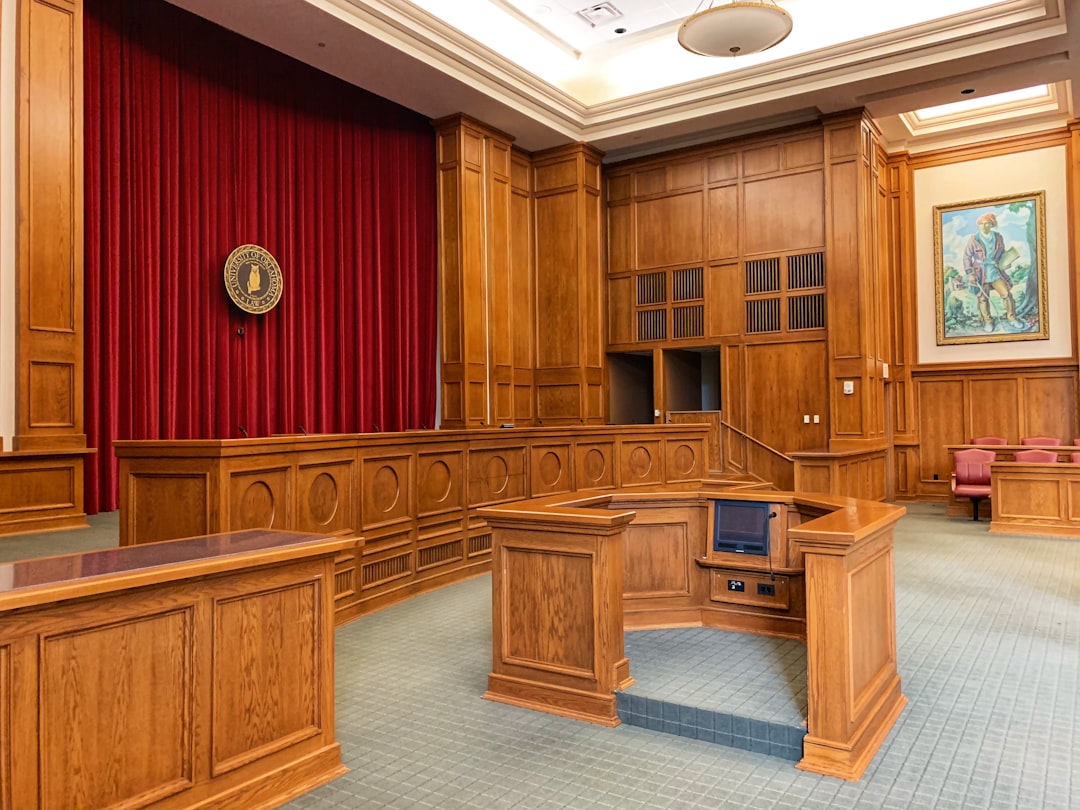The Judges’ Urgent Wake-Up Call (Image Credits: Unsplash)
In the quiet hum of deliberation rooms and ivy-covered quads, a wave of resistance is building against bold political overtures, casting long shadows over America’s institutions.
The Judges’ Urgent Wake-Up Call
Federal judges across the country are raising alarms louder than ever before. They’ve openly described the situation as a full-blown “judicial crisis,” pointing fingers at the Supreme Court’s shadowy emergency orders tied to Trump administration moves.
These orders, often issued without much explanation, are eroding trust in the courts. Dozens of sitting judges shared their worries with reporters, fearing the whole system could lose its legitimacy if things don’t change. It’s like watching a foundation crack under pressure – subtle at first, but potentially devastating.
One key flashpoint involves blocks on policies, like troop deployments, getting lifted in ways that feel rushed and opaque. This isn’t just bureaucracy; it’s about the rule of law hanging in the balance.
What’s Fueling This Judicial Turmoil?
At the heart of the matter are the Supreme Court’s so-called “shadow docket” decisions. These quick rulings on urgent matters bypass the usual transparency, leaving lower courts scrambling and public confidence shaky.
Judges worry this pattern favors executive power too much, especially with Trump-era policies in play. For instance, recent lifts on blocks for Oregon troop plans highlight how these orders can shift the ground under ongoing cases without full debate.
It’s a recipe for confusion, with appeals courts caught in the crossfire. Experts say this opacity risks turning the judiciary into a rubber stamp rather than an independent check.
Universities Draw a Line in the Sand
Meanwhile, on the academic front, most major universities are flat-out rejecting a tempting offer from the Trump administration. The deal? Preferential access to federal funds in exchange for aligning with certain ideological priorities, like bolstering conservative voices on campus.
Out of nine approached, only two showed any quick interest – the University of Texas and Vanderbilt. The rest, including heavy hitters like Harvard, MIT, Penn, and Brown, said no thanks. MIT was the first to publicly decline, calling it a threat to their core values.
This pushback stems from fears that accepting would compromise academic freedom. Schools see it as a ploy to influence curricula and hiring, turning education into a political battlefield.
Breaking Down the Offer’s Fine Print
The proposal sounds straightforward at first: sign a “compact” promising to protect diverse viewpoints, and unlock easier paths to grants and contracts. But critics argue it’s loaded with strings attached to Trump’s agenda.
For universities, the stakes are high. Federal funding is a lifeline for research and operations, yet compromising independence could alienate faculty and students alike.
- MIT’s rejection emphasized safeguarding intellectual inquiry over political mandates.
- Harvard’s leaders weighed fighting in court versus negotiating, ultimately leaning toward resistance.
- Brown and Penn followed suit, prioritizing autonomy in a tense climate.
- Only Texas hinted at openness, perhaps eyeing the financial perks.
Connections Between Courtrooms and Campuses
These stories aren’t isolated; they reflect broader tensions in how institutions navigate political pressures. Just as judges decry opaque rulings undermining the courts, universities fear similar erosions of their missions.
The timing feels eerie – with Trump back in the spotlight, both arenas are testing boundaries. Appeals courts lifting blocks on deployments echo the funding offer’s aim to reshape norms from the top down.
Observers note this could signal a larger pattern: executive branches pushing limits, forcing reactive stands from the judiciary and academia.
Looking Ahead: What Happens Next?
As these developments unfold, the judicial warnings might push for reforms in how the Supreme Court handles emergencies. More transparency could be on the horizon, though change comes slow in Washington.
For universities, the rejections set a tone of defiance. They might face funding squeezes, but the bet is on long-term integrity winning out. It’s a high-stakes game where principles clash with pragmatism.
Key Takeaways:
- Judges see a “crisis” in the Supreme Court’s secretive orders, risking public trust.
- Most top universities spurn Trump’s funding deal to protect academic freedom.
- This resistance highlights institutional pushback against ideological overreach.
In the end, these moves remind us that America’s pillars – courts and campuses – aren’t easily swayed. They’re standing firm, betting on resilience over quick gains. What do you make of this standoff? Share your thoughts in the comments below.




